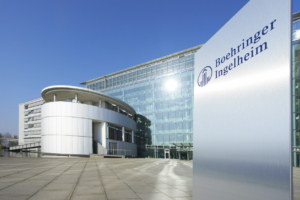
Long version of The BIOSECURE Act: The West’s Wake-Up Call to China’s Biotech Dominance
By Jeremy Levin, D.Phil, MB BChir
The U.S. House of Representatives recently passed the BIOSECURE Act, which prohibits U.S. biopharma companies from collaborating with Chinese contractors. The Act, propelled by concerns about national security, including data leaks and intellectual property theft from U.S. companies, now moves to the Senate, where it is expected to pass.
The impact is a ripple effect across the biopharmaceutical supply chain. U.S. companies will be forced to find alternative suppliers by January 2032. As a result, much of the life science sector’s attention has been focused on mitigating the near-term business consequences. Yet, this legislation reflects a broader, inevitable shift in the political, economic, and military forces shaping decisions by U.S., Chinese, and European policymakers.
For life science leaders, a comprehensive analysis of the economic and security relations between China and the West is warranted. The policy interests of both China and the U.S. have the potential to shift regional dominance within the sector, with far-reaching implications for supply chain sustainability, drug development competitiveness, and commercial opportunities.
China’s Biotech Rise
At the start of the 21st century, China made biotechnology a key part of its national economic planning. Science and technology were declared drivers of economic development, laying the foundation for sectors including pharmaceuticals, agriculture, and environmental biotech.
Since then, China has intensified its investment and policy initiatives aimed at establishing itself as a global leader in biotech innovation. Plans throughout the 2010s emphasized cutting-edge research in genomics and bio-manufacturing. Last July, during the Chinese Communist Party’s Third Plenum, President Xi Jinping reiterated his ambition for world leadership in biomedicine by 2035.
In contrast, the West was slow to adopt national policies that foster biopharmaceutical innovation. Until the COVID-19 pandemic, biotech was not prioritized as a strategic national asset. The BIOSECURE Act may now reverse that trend. Beyond protecting U.S. security, it could lead to longer-term onshoring of resources back to America and Europe. However, the short-term consequences are severe for the industry across manufacturing, clinical trials, intellectual property, and data security.
Complex Manufacturing and CDMO Dependency
Over the last 20 years, many Western-headquartered companies have become reliant on manufacturing and CDMOs in China, making agreements with Chinese companies central to the sector’s productivity.
A U.S. survey of 124 biopharma companies found that 79% have at least one contract or product with a China-based or Chinese-owned CDMO/CMO. China is one of the largest suppliers of complex peptide, immunotherapy, and antibody drugs to U.S. and European pharmaceutical companies. It is estimated that 13% of the world’s manufacturing facilities supplying APIs to the US are in China and China is a major global supplier of API for generic drugs. Additionally, China is responsible for approximately 42% of global export value of antibiotics.
This dependence raises concerns in the West about national security risks and overreliance, particularly during global supply chain disruptions. This has prompted calls for diversifying suppliers and increasing domestic production. However, geographic diversification is slow. Biotechs may need up to eight years to switch manufacturing partners, potentially affecting millions of patients. For preclinical and clinical work, changing vendors may require anywhere from six months to six years, depending on the service and availability of other providers.
Clinical Trial Dislocation
The situation with clinical trials is similarly complicated. Many promising medicines currently in clinical trials in China could be impacted by the BIOSECURE Act, particularly if governments make it more difficult to share participant data across borders. IQVIA reports that China’s share of global clinical trials grew by 57% over the last five years, compared to a 17% increase in North America’s share and Western Europe’s share decreased by 21%. While China’s share remains smaller than that of Western Europe or the U.S., it has been on the rise. If international relations continue to deteriorate, patients in all regions may suffer as trials take longer to recruit, and patients may be restricted from accessing investigational medicines.
Intellectual Property and Data Dominance
Biopharmaceutical executives must closely monitor the actions of the U.S. administration, intelligence, and security agencies. The U.S. Department of Justice has reported incidents involving Chinese nationals allegedly stealing trade secrets from Western biotechnology companies. The U.S. intelligence community has also raised concerns about China’s intellectual property acquisition strategies, which allegedly appropriate private commercial technologies for military applications. Unauthorized acquisition and transfer of intellectual property pose significant risks to the competitive advantage of Western firms, potentially impacting market leadership.
China also seeks an advantage through the collection of genetic data. The government-sponsored “national genetic survey” aims to become the world’s leading repository of genetic data. With a population of 1.4 billion, China has a vast and valuable data pool that could be instrumental in studying and treating diseases and understanding the role of genes in defects and longevity. Such large-scale collection could overshadow the competitive advantage of the U.S. and Europe, which have stricter prohibitions on the use of citizens’ sensitive health data.
Opportunities & Risks
If BIOSECURE is a wake-up call, it can also serve as a call to action. The U.S. and EU should implement a forward-looking “BIOBUILD” plan to maintain global leadership and pair divestment from China with strategic domestic investment.
This plan should be multi-dimensional and include tax, regulatory, educational components. In the mid-term, supply chain development should be incentivized, and investors encouraged to help build high-quality, low-cost chemical, API, and CDMO capabilities in the EU and North America. Some private funds have already seized this opportunity, but we need more. One example is Resilience, which secured billions of dollars to build CDMO sites in North America.
A BIOBUILD plan might include modifications to tax policy, allowing venture funds and companies to write off investment losses for projects that may be scrapped once BIOSECURE is enforced. Small biotechs, which rely heavily on low-cost Chinese suppliers, would benefit from government incentives supporting their transition.
Finally, a BIOBUILD strategy must focus on improving regulatory requirements in the EU and U.S. to accelerate approvals and invest in education to produce the human capital required to build and sustain the biotechnology workforce.
China is playing a long game to become the world’s leading biotechnology power. We are entering a new, hypercompetitive global landscape. Should fragmented, ill-organized approaches persist across the West, we will lag a superpower with a 15-year head start. Formulating forceful BIOBUILD plans is the opportunity today. The West ignores this wake-up call at its own peril.
A summary of this editorial and some background on the potential impact of the Biosecure Act has been published in the Autumn issue of European Biotechnology Magazine. Please get here to subscribe to our newsletter
About the Autor: Jeremy M. Levin, D.Phil., MB BChir
Dr. Levin has held leadership roles in major pharmaceutical and biotechnology companies, contributing significantly to the industry. He is currently Chairman and CEO of Ovid Therapeutics and Chairman of Opthea. Previously, he served as President and CEO of Teva Pharmaceutical Industries and was on Bristol-Myers Squibb’s Executive Committee, where he led the transformative “String of Pearls” strategy in immuno-oncology. He has also been Global Head of Strategic Alliances at Novartis and holds numerous board positions. Dr. Levin serves on the Board and Executive Committee of the Biotechnology Innovation Organization (BIO) as Emeritus Chairman. He earned a BA in Zoology, an MA, and a DPhil in Chromatin Structure from Oxford University, followed by medical degrees from Cambridge University, where he won the Kermode Prize for his work on Captopril. In 2019, he published Biotechnology in the Time of COVID-19, detailing the industry’s early efforts to create vaccines and treatments for the pandemic. He has received numerous awards and recognitions, including the Scrip Lifetime Achievement Award in 2023, being named by Endpoints as one of 60 living pioneers of the industry, one of the 25 most influential biotechnology leaders by Fierce Biotech, and one of the top 3 biotech CEOs by The Healthcare Technology Report. Among his other honors are the Albert Einstein Award for Leadership in Life Sciences and the B’nai B’rith Award for Distinguished Achievement. Dr. Levin has lived in South Africa, Israel, Switzerland, the UK, and now resides in the US.


 BioDlink
BioDlink Boehringer Ingelheim
Boehringer Ingelheim Roche
Roche